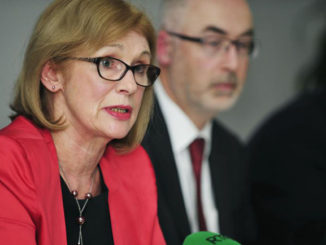
[dropcap]D[/dropcap]CU Sustainable Living Society’s successful campaign for a single-use plastic-free campus has borne a DCUSU referendum, aimed at the University’s Board of Directors.
The referendum will open on DCU’s online platform Loop between Wednesday 7th and Friday, March 9th. A total of 2000 votes in favour of a ban on single-use plastics are needed for the referendum to pass.
The EU aims to ban single-use plastics by 2030. Ireland is the top producer of plastic waste in the EU at 61kg per person annually, according to Eurostat.
Dr David Robbins, a lecturer at the School of Communications – with interests in media and climate change – fully supports the campaign.
“I think we should follow the example of Cork County Council in banning them [single-use plastics] completely. From plastic water glasses in the restaurant to coffee-pod machines in common rooms, the amount of plastic being sent to landfill from DCU is appalling. What’s wrong with pottery cups and glasses made of glass?” he said.
Danika Sugrue, Chairperson of DCU Sustainable Living Society stresses the dedication of her team in promoting the campaign. Although the Society promotes the zero-waste lifestyle, she disagrees with the term.
“Zero-waste is extremely difficult to attain, which can be disheartening to those trying to achieve it. That’s why the campaign is based around plastic-free,” she said.
The lifestyle is often criticised for being unrealistic as most foods come pre-packaged, while non-packaged foods cost more.
“What is realistic is a ‘reduced-waste’ lifestyle; the ethos of the Sustainable Living Society is to celebrate any effort made to reduce waste and not to put down people who are trying their best,” said Sugrue.
As just 6 per cent of new plastic material has been recycled, reducing plastic consumption all-round is more effective to make a difference.
The top three plastic exporters in 2016 were Hong Kong (2.8 million tonnes), the US (1.9 million tonnes) and Japan (1.5 million tonnes) according to Raconteur.
China’s plastic imports topped 7.3m tonnes in 2016, including 95 per cent of Ireland’s plastic waste.
On-campus, a range of reusable cups and straws will be available for purchase from retailer ‘EarthMother’, while a representative from the Conscious Cup Campaign will spread awareness on the consequences of disposable cups on Tuesday.
Sabrine Donohoe
Image Credit:



